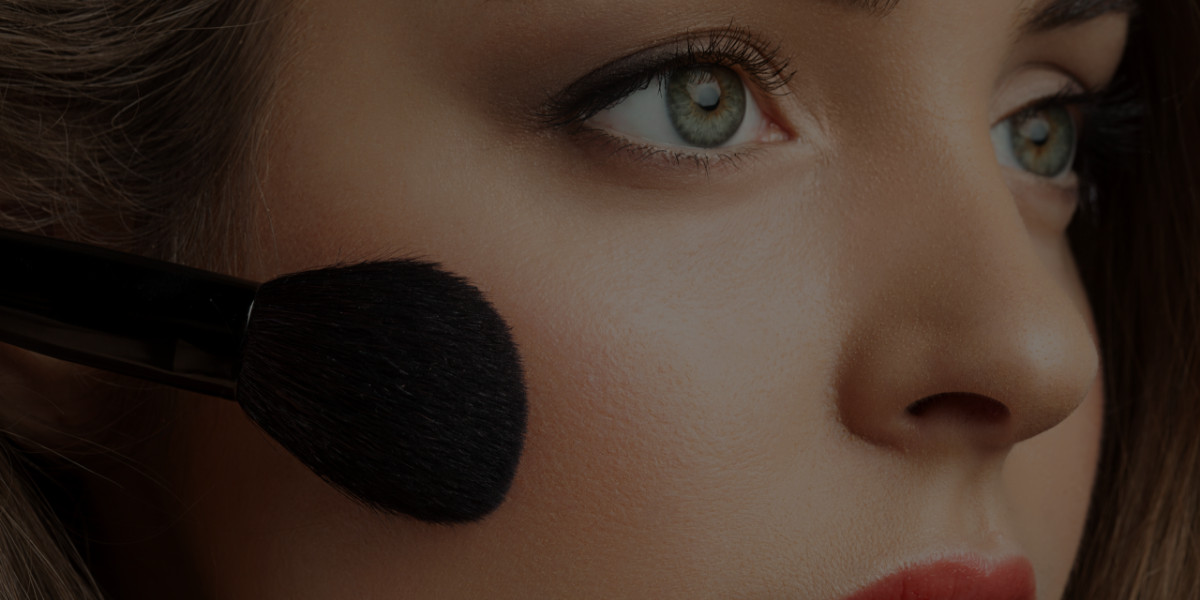Online makeup classes allow you to learn and practice from the comfort of your own home, but did you know that you can build your professional makeup portfolio at the same time?
The skills and knowledge you acquire during your makeup course, as well as the photographs you take of your work, will lend themselves beautifully to a portfolio. Choosing the makeup applications you’re most proud of and placing them in either a physical or online format will allow you to show potential clients your talent and capabilities as a makeup artist.
Read on to find out just how your online makeup course prepares you to build your portfolio, and simple ways you can prepare a showcase of your work during your time as a student!
 In terms of format, digital portfolios are your best bet. Although some clients will still expect to see a physical showcase of your makeup artistry work (and you should create one to have on hand), we recommend focusing on creating an online-based portfolio. There are a ton of different websites available to help you create your digital portfolio, so do your research and find out which one is best for you!
In terms of format, digital portfolios are your best bet. Although some clients will still expect to see a physical showcase of your makeup artistry work (and you should create one to have on hand), we recommend focusing on creating an online-based portfolio. There are a ton of different websites available to help you create your digital portfolio, so do your research and find out which one is best for you!
 Taking high-quality photos of your work requires careful attention to good lighting and proper angles, among many other considerations. Editing is also very important, and it is very easy to turn to Photoshop and other editing software, which should be avoided!
Consult with your tutor about the photos you’ve taken for assignments, and invite their feedback with regards to your technique. Your makeup tutor is a seasoned professional with years of experience, and is there to help you become a makeup artist, so be sure to consult with them as much as you need to during your time as a student, and as you build your portfolio!
Taking high-quality photos of your work requires careful attention to good lighting and proper angles, among many other considerations. Editing is also very important, and it is very easy to turn to Photoshop and other editing software, which should be avoided!
Consult with your tutor about the photos you’ve taken for assignments, and invite their feedback with regards to your technique. Your makeup tutor is a seasoned professional with years of experience, and is there to help you become a makeup artist, so be sure to consult with them as much as you need to during your time as a student, and as you build your portfolio!
Decide on a focus and a format
As a student in an online makeup course, you’ll learn a great deal about the industry as well as yourself as a makeup artist! QC Makeup Academy’s Master Makeup Artistry course begins with a unit that requires you, the student, to think about the kind of makeup artist you’d like to be, which is an essential place to start when building your makeup portfolio. Once you have an idea of one or two areas you want to focus on, you can start planning out the types of looks you’ll include in your makeup portfolio. Showing clients one or two specific types of looks will help them understand your areas of expertise as a makeup artist. If you have a few different focuses, consider creating more than one portfolio to cater to specific clients, such as one that showcases your bridal makeup looks, one that shows everyday makeup, and another for your special effects looks. You may not have any work to showcase in the early days of your makeup course, but knowing whether you’ll focus on bridal makeup, special effects makeup, or high fashion makeup (to name a few!) will steer you in the right direction. In terms of format, digital portfolios are your best bet. Although some clients will still expect to see a physical showcase of your makeup artistry work (and you should create one to have on hand), we recommend focusing on creating an online-based portfolio. There are a ton of different websites available to help you create your digital portfolio, so do your research and find out which one is best for you!
In terms of format, digital portfolios are your best bet. Although some clients will still expect to see a physical showcase of your makeup artistry work (and you should create one to have on hand), we recommend focusing on creating an online-based portfolio. There are a ton of different websites available to help you create your digital portfolio, so do your research and find out which one is best for you!
Diversify your makeup applications
Online makeup classes require students to submit photos of their makeup applications to their tutor, who will provide feedback and guidance. As you continue to practice, you’ll begin to notice improvements in your skills (and a healthy boost of confidence in yourself!), and this is a great time to start creating a digital collection of all your makeup photos. You’ll potentially be able to use these photos in your makeup portfolio in the future, and even though you may only choose a few of these photos, you’ll have options. As a student in an online makeup course, you’ll be required to complete your assignments on models (even if you use yourself!), and this is a golden opportunity to use a variety of faces and skin types in order to diversify your portfolio. Don’t be afraid to approach family, friends, and aspiring models to offer your makeup services to, and network within the makeup industry to find volunteers, as well! There are many ways to find makeup models, and a portfolio full of different looks on different faces will impress clients and show them just how talented you are as a makeup artist. As mentioned above, your skills and confidence will grow as you progress in your online makeup course, so use the assignments you’re particularly proud of in your portfolio to showcase your range of skills, and include your tutor’s feedback as well (with their permission, of course) in order to show clients exactly what you learned and how your work was graded.Take professional photos
Professional makeup artists need to know how to take professional photos of their work. While positive word-of-mouth will attract the attention of new clients, they are not likely to hire a makeup artist based on words alone. An online makeup course will teach you makeup artistry for photography, as well as how to work with a photographer and specific photography techniques, preparing you to create a visual showcase of your work in the most professional way possible. Taking high-quality photos of your work requires careful attention to good lighting and proper angles, among many other considerations. Editing is also very important, and it is very easy to turn to Photoshop and other editing software, which should be avoided!
Consult with your tutor about the photos you’ve taken for assignments, and invite their feedback with regards to your technique. Your makeup tutor is a seasoned professional with years of experience, and is there to help you become a makeup artist, so be sure to consult with them as much as you need to during your time as a student, and as you build your portfolio!
Taking high-quality photos of your work requires careful attention to good lighting and proper angles, among many other considerations. Editing is also very important, and it is very easy to turn to Photoshop and other editing software, which should be avoided!
Consult with your tutor about the photos you’ve taken for assignments, and invite their feedback with regards to your technique. Your makeup tutor is a seasoned professional with years of experience, and is there to help you become a makeup artist, so be sure to consult with them as much as you need to during your time as a student, and as you build your portfolio!
